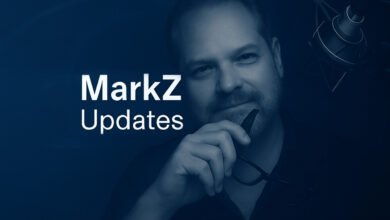Tishwash: Al-Sudani: There is a major economic transformation in Iraq… Investments total $100 billion.
Prime Minister Mohammed Shia al-Sudani announced today, Thursday, September 18, 2025, that the volume of investments in Iraq has reached $100 billion.
A statement from the Prime Minister’s Office, received by Baghdad Today, stated that al-Sudani “met a group of tribal sheikhs, dignitaries and academic elites from the people of the Karrada area, at the guest house of Sheikh Mahdi al-Hakak, and expressed his thanks for the invitation and the good opportunity to meet this group of the people of Karrada, the city that made sacrifices during the rule of the dictatorial regime and after the change in 2003, as it turned into a target for terrorism, and is also distinguished by embracing prominent names in the fields of politics, commerce, sports, culture and other fields.”
Al-Sudani explained, according to the statement, that “the government has implemented the first package of demands that the people of Karrada had previously submitted to him, and work is underway on the second package, pointing to the state of stability and security throughout Iraq, where the security services are imposing their full control.”
Al-Sudani stressed “the necessity of participating in the upcoming elections, with awareness, to ensure accurate selection, which means cutting halfway to the security, stability and development we seek. He also stressed the importance of overcoming the mistakes of the past stages, by prioritizing the national interest.”
He promised, “Boycotting the elections is not the solution, and will be a gift to the corrupt and anyone with an agenda that does not serve the country,” indicating that “countries of the world look at Iraq today with respect and appreciation for its achievements in many fields.”
He pointed out that “the presence of major international companies operating in Iraq is a sign of its recovery, and there is a major economic transformation in Iraq, with the volume of investments reaching $100 billion, meaning that it is a safe and stable country and an attractive environment for investment.”
The Prime Minister indicated that “Iraq is a large workshop, and in every governorate there is ongoing work to provide services according to a well-thought-out vision and plan. Integrity is one of the most important criteria for political work, and it is necessary to prioritize the public interest over partisan and factional interests.”
He stressed, “The future belongs to the youth, who constitute 60%, and it is our duty to provide job opportunities for them and secure their future.” link
Tishwash: Government advisor: Economic reforms have put Iraq on a new path to growth and stability.
Written by Dr. Saleh Mahoud Salman / Advisor to the Prime Minister
Prime Minister Salih Mahoud Salman, advisor to the prime minister, affirmed on Friday that the economic reforms adopted by the government have placed Iraq on a new path of growth and stability. While explaining that the country is steadily moving toward a more diversified and resilient economy that places people at the heart of development, he noted that the Development Road Project and the Faw Port are symbols of an economic future that connects Iraq to the world.
Speaking to the Iraqi News Agency (INA), Salman said, “Iraq stands today at a historic crossroads, after its foreign and gold reserves increased, and its investment and infrastructure projects expanded, on a path that establishes a more diversified and resilient economy that places people at the heart of development.”
He explained, “The Iraqi economy is not just numbers in the budget or data issued by financial institutions. Rather, it is the story of a country that has suffered for decades from successive crises that have left their mark on people’s lives and daily livelihoods.”
He added, “Since the 1980s, Iraq has been mired in a cycle of wars and sanctions, which have excluded its banks from the global financial system, weakened its ability to attract investment, and led to an almost total dependence on oil revenues. After 2003, despite the significant opening to international markets, a significant portion of the banks remained little more than ‘fronts’ for selling currency through the central bank window, unable to practice modern banking. Meanwhile, public companies remained a heavy burden on the budget, without a productive return commensurate with the resources they consumed.”
He continued, “This bleak picture is accompanied by other problems, most notably high unemployment and poverty rates, weak productive sectors, heavy bureaucracy, and corruption that has drained the state’s resources.”
Salman pointed out that, “In the face of these complex challenges, Prime Minister Mohammed Shia al-Sudani’s government program came with a set of central priorities, with economic reform at the forefront, along with reforming the banking system, activating electronic payments, completing the unified treasury, improving the business environment, and reforming the tax and customs systems. Thus, Iraq began to prepare for a new phase, after the government realized that continuing with the old approach was no longer a viable option.”
He added, “Hence, the need to confront the heavy economic legacy that has shackled the country for decades emerged. The economy remained captive to oil rents, while the agricultural and industrial production sectors declined, and unemployment and poverty rates rose. Perhaps the first step was to reconsider the role of public companies and the government apparatus. Supreme committees were formed to restructure them according to a new philosophy that makes the state a ‘manager, not an owner.’ This represented the beginning of a comprehensive reform process that paves the way for a more resilient economy.”
Salman pointed out, “While these efforts were related to the institutional structure, financial reform represented the other side of the process. The adoption of a three-year budget (2023-2025) was not merely an accounting measure, but rather an unprecedented step that focused on investment spending rather than operational spending. It also launched tax reform packages aimed at raising collection by 30 percent by 2025. With the adoption of a unified treasury and the shift to automation and electronic payment, these decisions quickly reflected in revenues, which recorded a significant jump of more than 100 percent compared to previous years.”
Ali emphasized that “although budget control was necessary, financial sector reform alone is not sufficient without addressing the core of the economy, represented by the banking system. This is where the launch of the new trade finance platform in November 2022 changed the nature of banking in Iraq.”
He continued, “By linking foreign transfers to private banks under the supervision of the Central Bank, the parallel market was brought under control, and the difference between the official and parallel rates was reduced by more than 60 percent. In parallel, the restructuring of Rafidain and Rashid Banks began with international support, transforming the banks from mere currency brokers into modern financial institutions. The US Treasury even described this step as a ‘historic achievement.'”
He pointed out that “from the womb of these banking transformations emerged the electronic payment experiment, which quickly became the most prominent title of reform. As soon as government departments were obligated to use it, the experiment expanded to include the private sector, with points of sale increasing from 10,000 in 2022 to 50,000 in 2025, and the volume of monthly payments jumping from 90 billion dinars to more than 500 billion.
The number of bank cards also increased to 22 million, and the financial inclusion rate jumped from less than 10 percent to 40 percent in just three years, an achievement the World Bank considered unique compared to stable countries that took a full decade to achieve what Iraq accomplished in two years.”
“Because money needs an environment that can absorb it, it was only natural for reforms to extend to the field of investment and infrastructure,” Salman said. “Thus, the ‘Development Road’ project and the Grand Faw Port were born as symbols of an economic future linking the Gulf to Europe. Agreements were signed with the World Bank to finance projects in railways, energy, and water.
Internally, Iraq has begun to localize pharmaceutical and construction industries and open industrial projects of various sizes, in addition to launching solar energy initiatives in factories to relieve pressure on the national grid. Thus, reforms have become more comprehensive, not limited to money and banks, but extending to the productive and developmental infrastructure.”
He continued, “While plans and policies are important, numbers remain the truest witness to the magnitude of the transformation. Foreign reserves rose to $106 billion in March 2025, up from $86 billion at the end of 2022, a growth rate of more than 12 percent. Gold reserves rose from 130 tons to 163 tons during the same period, an increase of 25 percent. Inflation declined from 7.5 percent to 2.7 percent, reflecting tangible monetary stability.”
He added, “In the banking sector, the number of accounts doubled from eight million to twenty million, and the number of bank cards increased from sixteen to twenty-two million. The electronic payment infrastructure also made a significant leap, with points of sale increasing from ten thousand to fifty thousand, and monthly payments increasing by 460%.”
He pointed out that “these indicators did not stop there, as the gap between the official and parallel rates decreased by more than sixty percent, and the financial inclusion rate rose to forty percent after being less than ten percent just two years ago. International financing agreements worth $1.2 billion were signed, and tax revenues increased in 2024 by about thirty percent compared to the previous year.
In the field of digital transformation, the “OR” electronic portal and the electronic passport were launched, and authentication of issuance transactions were canceled through the secure documents system, which processed more than fifteen million transactions. As for customs, revenues rose to 2.131 trillion dinars in 2024 compared to 1.03 trillion in 2023, an increase of 106%, and a growth rate of 128% compared to before 2022.”
Salman emphasized that “the transformations were not limited to finance and revenues, but also included development initiatives. The Central Bank and government banks launched programs to support housing, renewable energy, youth entrepreneurship, and industrial cities. The Iraq Development Fund was also established as a new financing arm. In the industrial sector, practical steps were taken to localize the pharmaceutical and construction industries, various production projects were opened, and initiatives were launched to equip factories with solar energy, in addition to signing agreements with global industrial unions.”
He pointed out that, “Despite all these results, it is undeniable that the road ahead is still full of challenges. Oil remains the backbone of the budget, and bureaucracy and corruption remain major obstacles to consolidating reform. Nevertheless, the government’s goals through 2026 appear both ambitious and realistic: reducing dependence on oil to less than 85% of revenues, reducing the fiscal deficit to less than 3% of GDP, improving Iraq’s credit rating, and completing the digital transformation of public finances.”
He continued, “Thus, Iraq today stands at a historic crossroads. After decades of crises and turmoil, reforms have begun to become tangible facts, demonstrated by numbers and indicators. While the road is still long, what has been achieved in such a short period proves that change is possible when there is political will and a clear vision.”
He pointed out that “Iraq has begun to take steady steps toward a more diversified and resilient economy, one that places people at the heart of development and gives future generations hope for a nation capable of rising again.” link



